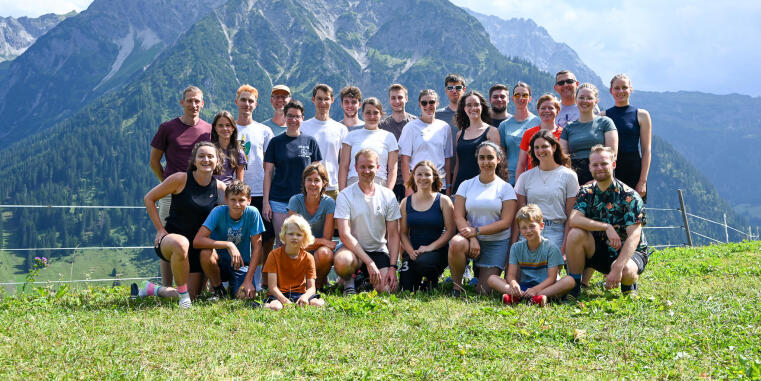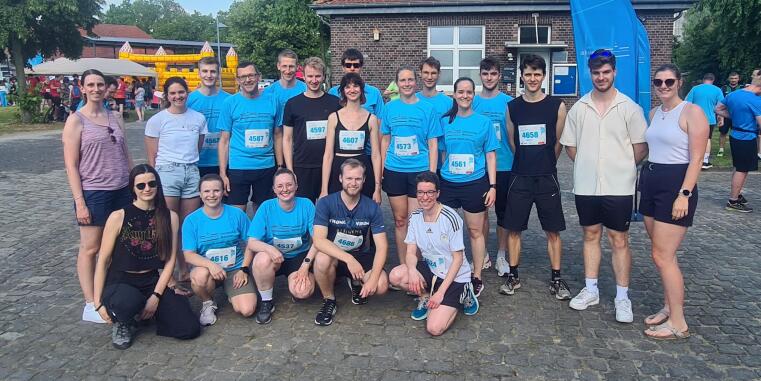




On November 29th, the graduates of the MSc. Food Chemistry together with other graduates of the Master's degree courses in the Faculty of Chemistry and Pharmacy were awarded their certificates. Together with their families and friends, the students had the opportunity to look back on their studies at the festive event and celebrate their achievements.

The prize for the best Master's thesis in Food Chemistry at the University of Münster was also presented during the event. The prize, sponsored by Wessling, part of ALS Limited,and endowed with € 1000, was awarded this year to Ms. Louisa Sophie Tölke.
The award-winning thesis is entitled "Toxicological characterization of additives of lithium-ion batteries and their resulting aging products" and was conducted at the Institute of Food Chemistry in the working group of Prof. Dr. Melanie Esselen in cooperation with the Institute for Hygiene.

The core structure of apicidins consists of four amino acids linked together in a cyclic configuration. These compounds, produced by various Fusarium species, are best known for their efficacy against the malaria parasite Plasmodium falciparum, which is due to their inhibition of histone deacetylases. This inhibition affects the accessibility of DNA for transcription, thereby influencing multiple cellular signaling pathways.
At the Institute of Food Chemistry, previously research on the pathogenic filamentous fungus Fusarium fujikuroi has been conducted. During that time, the team identified three additional apicidins—Apicidin F, J, and K—following genetic modification of the wild-type strain. Apicidins J and K were found to be structural derivatives of Apicidin F, differing by just one amino acid in their ring structure.
Building on this work, Alica Fischle, a PhD student in Dr. Svetlana Kalinina’s group, has continued the investigation. The study began with an analysis of mutant strains to assess their cultivability and the potential presence of an additional apicidin derivative that incorporates the modifications found in Apicidins J and K. After optimizing the culture conditions, the new substance was extracted, purified, and characterized alongside the known apicidins. Structural analysis using nuclear magnetic resonance spectroscopy (NMR) and high resolution mass spectrometry (HRMS) successfully identified the new tetrapeptide as “Apicidin L”.
Further research evaluated the cytotoxicity of all four apicidins, as well as their biological activity against P. falciparum and their ability to inhibit histone deacetylases. The findings revealed that the structural differences among the apicidins led to varied effects in biological systems. The full results of this study are available as open access in the Journal of Natural Products and Bioprospecting at https://doi.org/10.1007/s13659-024-00473-9. The project also received a poster prize at the ACS Symposium on Biological and Medicinal Chemistry in March 2023, which can be viewed at https://axial.acs.org/biology-and-biological-chemistry/poster-prize-winners-acs-publications-symposium-biological-and-medicinal-chemistry.

As in previous years, a team from the Institute of Food Chemistry took part in this year's Leonardo Campus Run. In the summer heat, a group consisting of trainees, students working on their Master's thesis, technical staff, scientific staff and university lecturers, run together. Supported by colleagues, the 15 runners completed the 5 km easily. The running party ended with a joint barbecue. The date for the 23rd Leonardo Campus Run, 25.06.2025, has already been set!